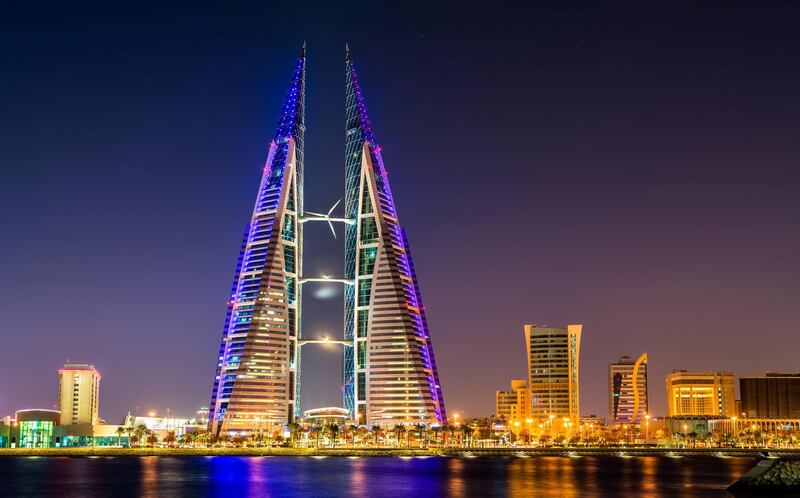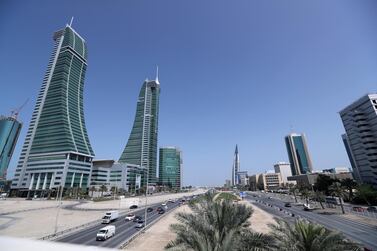Bahrain's gross domestic product grew 0.8 per cent in the second quarter of this year, boosted by a rise in non-oil economy that helped the country offset a drop in the output of its oil sector during the period.
The non-oil GDP grew 1.2 per cent year-on-year in real terms (the value of economic output adjusted for inflation and price changes) during the second quarter, according to an Information and eGovernment Authority report carried by the state news agency. The oil sector's growth contracted 0.8 per cent, which is "in line with current global oil market conditions", according to preliminary data released by the finance ministry, the information authority said.
The country’s non-oil economy growth during the second quarter was boosted by a 16.4 per cent expansion of the financial sector, helped by the rise in profitability of financial institutions and insurance underwriters. The hotels and restaurants sector grew 8.7 per cent, while the construction sector recorded an output of 4 per cent, according to the report.
The manufacturing industry, however, contracted by 0.5 per cent and real estate sector shrunk by 4.7 per cent, the report said.
The kingdom’s economy also expanded by 3.4 per cent quarter-on-quarter at constant prices. Real non-oil economic output grew 1.8 per cent, while the oil sector improved by 11 per cent at constant prices from the first quarter of the year.
Bahrain's economy slowed last year to 1.8 per cent due to a reduction in oil production, its main source of revenue, and a lull in the financial services sector, which accounts for a major chunk of its non-oil economy. The country's economy, the smallest in the GCC, however, benefits from its proximity to Saudi Arabia, which is the biggest economy in the bloc.
Bahrain received a pledge of $10 billion (Dh36.7bn) in October 2018 from the UAE, Saudi Arabia and Kuwait to financially support its reforms that aim to eliminate the budget deficit by 2022.
The programme, drawn up after a thorough review of Bahrain’s spending, aims to achieve annual savings of 800 million Bahraini dinars (Dh7.8bn). The package is based on six pillars, which include controlling public expenditure, a voluntary retirement scheme for public sector employees, streamlining distribution of cash subsidies to citizens and increasing non-oil revenues.
Bahrain's economy is forecast to grow 2.3 per cent this year and next while expanding by an average of 2.4 per cent annually until 2022, helped by investments and growth of the non-oil economic base, S&P said in report earlier this year.








